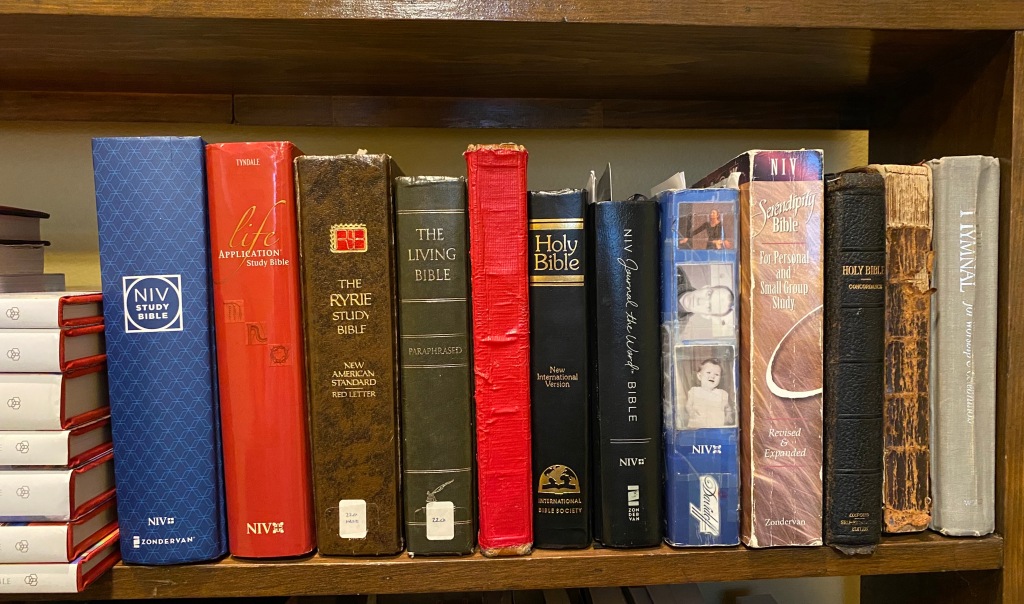
The Perplexing Mystery (CaD Ps 10) – Wayfarer
The Lord is king forever and ever;
the nations shall perish from his land.
O Lord, you will hear the desire of the meek;
you will strengthen their heart, you will incline your ear
to do justice for the orphan and the oppressed,
so that those from earth may strike terror no more.
Psalm 10:16-18 (NRSVCE)
We don’t talk much about evil anymore. It gets used as a weapon-word fired at the political “other” in the empty, name-calling wars on social media. It is referenced in conversations about acts so heinous that everyone agrees that they reached a depth of depravity so dark as to be inhuman. I observed, however, that even people of faith are dismissive of the notion that evil is set up in active conflict against good in the spiritual realm of this world.
Again, the devil took [Jesus] to a very high mountain and showed him all the kingdoms of the world and their splendor; and he said to him, “All these I will give you, if you will fall down and worship me.”
Matthew 4:8-9
The evil one was able to offer Jesus the kingdoms of this world and their splendor because this Level 3 world is where evil holds dominion until the final chapters of the Great Story. At every level of the socio-economic ladder from the grade school playground to Wall Street and Washington D.C. are those who will exploit anyone to advance their personal power base and portfolio of wealth. Unlike Jesus, they have knelt before the evil one and taken him up on his offer. These are the ones David writes about in the lyrics of today’s psalm.
As I mentioned in yesterday’s post, today’s psalm is connected to yesterday’s. Like We Will Rock You and We are the Champions by Queen, or Journey’s Lovin’, Touchin’, Squeezing and City of the Angels the two songs are were meant to go together. One of the common conventions of Hebrew songs and poems that is lost in translation to English is the fact that each line begins with each letter of the Hebrew alphabet in order just as if you wrote a poem and each line began with A, B, C, D, and etc., Psalm 10 picks up with the next letter of the Hebrew alphabet where Psalm 9 left off. In addition, there is no header or title to Psalm 10 like there has been for every other psalm we’ve read since Psalm 1. Psalms 9 and 10 go together.
With that in mind, King David is writing both psalms from his position as King of Israel. The thing I find most fascinating is that he is writing from a position of power. He’s at the top of the food chain. He holds more power in the kingdom than anyone else, and he is lamenting the wicked highway robbers who oppress the poor in the rural villages of his own country. He’s complaining about the wealthy brokers of power in his own kingdom who “prosper all the time” and establish their legacy for their descendants.
Why doesn’t he do something about it?
Along my journey I’ve observed that there is only so much that one can do in a world where evil has dominion. Not that I shouldn’t do everything that I can to act in the circles of influence in which I operate. I should. Nevertheless, I have witnessed good people, followers of Jesus, who have ascended the ladder of earthly power and influence only to find that there is only so much that they can do.
That’s the point I believe King David is getting to in his songs that read like a leader’s lament. His position of ultimate power in his kingdom cannot stop the wickedness of every rural bully bent on taking advantage of poor villagers. Even as King he is surrounded by the wealthy and powerful who have their own personal kingdoms built to oppose him.
It’s interesting that towards the end of today’s psalm David appeals to God as “King forever and ever.” At the end of his personal, earthly power that has fallen short of bringing justice to everyone, David appeals to God as the only higher authority who can step in and do something about it.
Welcome to one of the most perplexing spiritual mysteries of the Great Story. Jesus comes to earth and refuses to operate in worldly systems of the evil one’s dominion where injustice and wickedness reign and oppress the poor and the weak.
Why didn’t he do something about it?
Instead of confronting evil on earthly terms, Jesus goes instead to the rural, the poor, and the simple. He reaches out to individuals, encourages the personal transformation of individuals from self-centered evil to a life of self-sacrificing service to others. He triumphs not over earthly kingdoms but over Death. He wages war not against flesh-and-blood but against principalities, powers, and forces of spiritual darkness behind flesh-and-blood power. It leads me to consider that ultimately, the Great Story is not about this Earth. It’s not about this world. It’s not just about this 20,000 to 40,000 days I will spend journeying through this lifetime. It’s about something greater, something deeper, something more eternal.
In the quiet this morning I find myself identifying with David’s lament. At the end of the song, David expresses his trust that God sees the acts of evil and hears the cries of the oppressed. He entrusts the King of all with ultimately making things right. I have to do the best I can as an ambassador of God’s Kingdom on this earth in the circles of influence I’ve been given. Beyond that, I can only make an appeal to the King forever, and trust He will see this Great Story to its conclusion, joyfully ever-after.

If you know anyone who might be encouraged by today’s post, please share.

































































































































































